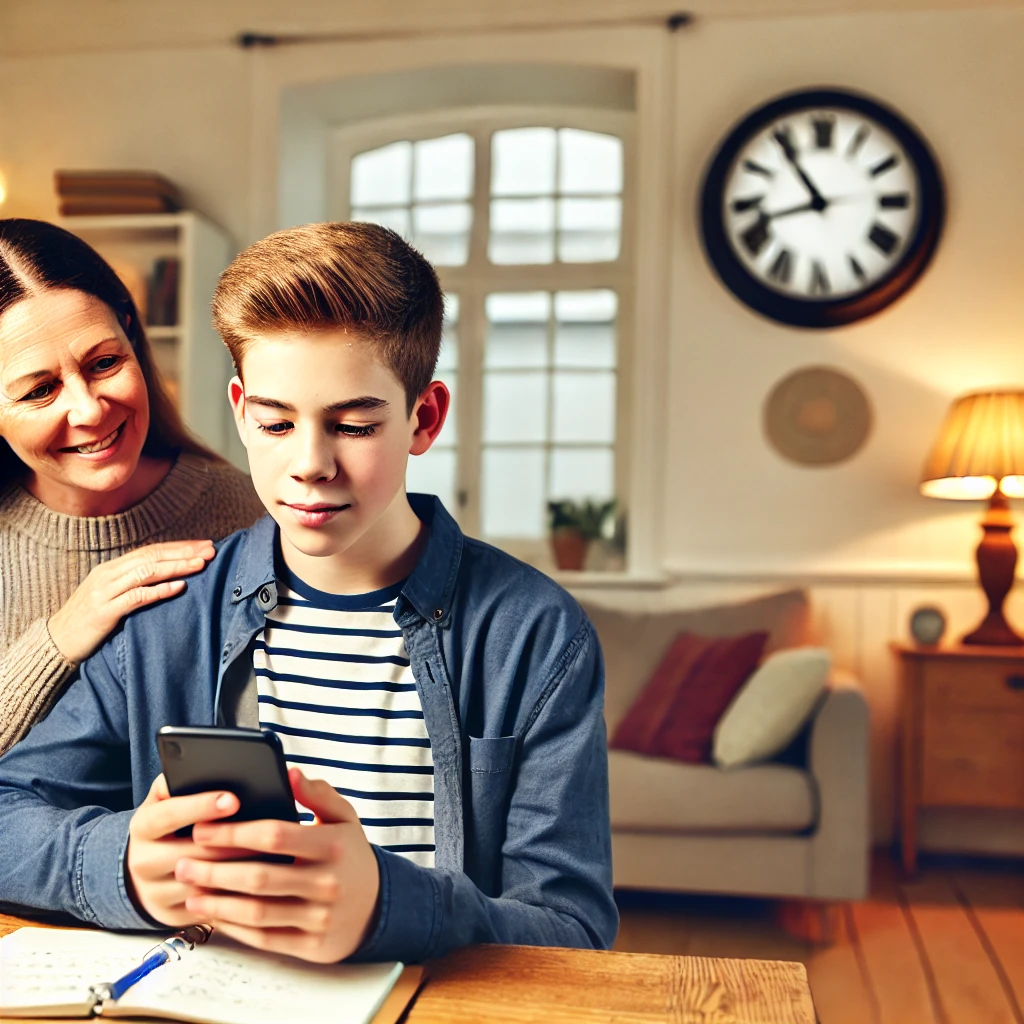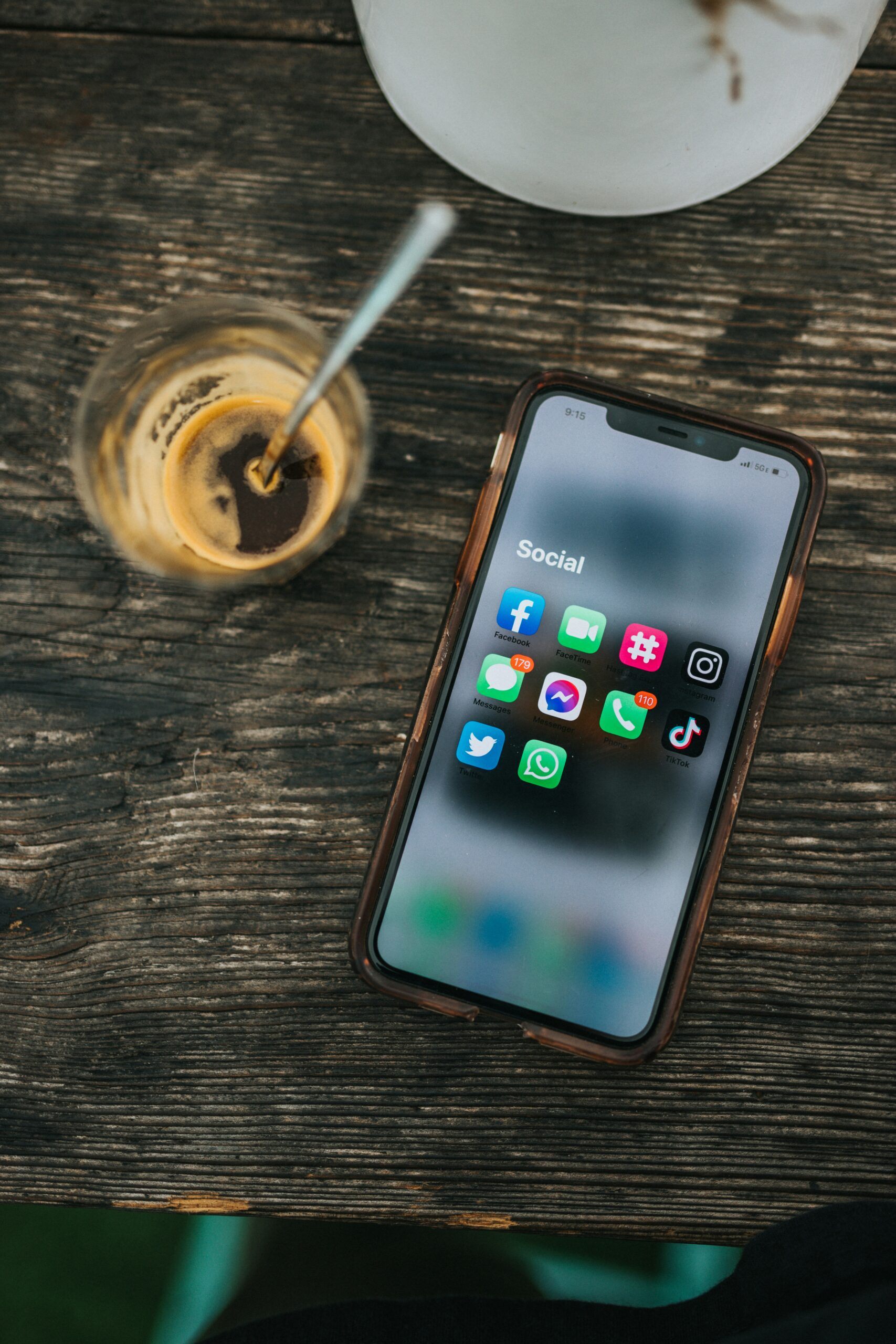In today’s digital age, managing screen time for teens is more important than ever, as parents strive to create a balance between healthy digital use and overconsumption. With more teens glued to their devices—whether for social media, gaming, or streaming—it’s critical to strike a balance between healthy usage and preventing overdependence. As a parent, knowing how to manage this time in a way that encourages learning, social interaction, and self-care without leading to addiction is crucial.
Managing Screen Time for Teens: Why It Matters
Excessive screen time isn’t just an inconvenience—it can have serious implications for teens’ mental and physical health, academic performance, and social development. Here’s why managing screen time for teens is so important:
Mental Health Impacts of Screen Time
When it comes to managing screen time for teens, too much exposure to social media can negatively impact their mental health. Constant exposure to online bullying, idealized portrayals of life, and peer comparisons can trigger anxiety, depression, and lower self-esteem. Keeping an eye on your teen’s screen time ensures that they aren’t overexposed to harmful content.
Physical Health Concerns with Excessive Screen Time
One of the key concerns in managing screen time for teens is addressing the physical health risks, such as eye strain, posture issues, and sleep disruptions. Teens who use their phones late into the night often find their sleep patterns disrupted, leading to fatigue and a lack of focus during the day. Limiting screen time, especially before bedtime, is crucial for promoting healthier sleep habits.
Academic Decline
Too much screen time, especially if it’s not used for educational purposes, can distract teens from their studies. Parents need to monitor how much of their teen’s screen time is spent productively. By managing screen time for teens effectively, you can help ensure they stay focused on their schoolwork and maintain good academic performance.
Digital Addiction
Mobile devices are inherently designed to capture and hold attention. For teens, this can translate into addictive behaviors, where they struggle to set boundaries and spend hours mindlessly scrolling or playing games. Managing screen time for teens is essential in preventing them from developing these addictive habits.
Social Development Concerns
While teens might be highly active online, too much screen time can actually stunt their real-world social skills. Managing screen time for teens helps ensure they are balancing digital interactions with face-to-face communication, which is crucial for healthy social development.
Exposure to Inappropriate Content
With the vast expanse of the internet at their fingertips, teens are at risk of stumbling upon content that is not age-appropriate, including violence, explicit material, or dangerous trends. Without managing screen time for teens, it becomes difficult for parents to shield them from harmful media.
Behavioral Challenges
Teens can become easily irritable or impatient when asked to disconnect from their screens. This constant attachment to their devices may create tensions at home, affecting relationships and overall family harmony. Managing screen time for teens helps mitigate these behavioral issues by promoting healthier habits.
How to Help Teens Develop Healthy Screen Habits
Now that we know the risks, how can parents effectively manage their teens’ screen time? The solution isn’t necessarily about hard limits but rather about fostering responsible, balanced usage. Here’s how:
Be a Role Model
Your behavior around screen time sets the tone for your teen. If you’re constantly glued to your phone, it’s unlikely your teen will take your advice on limiting screen use seriously. Instead, demonstrate healthy digital habits, such as setting device-free times or spaces in the house, and encourage your teen to do the same. This is a foundational aspect of managing screen time for teens effectively.
Focus on Quality, Not Just Quantity
Rather than imposing strict screen time limits, think about how, when, and where screens are used. Encouraging your teen to use devices for productive activities, like learning new skills or engaging in creative projects, can help balance out time spent on social media or gaming. Quality screen use is a key element in managing screen time for teens.
Encourage Screen-Free Zones and Times
Create designated screen-free zones in your home, such as the dining table or bedrooms. Having device-free family time can help everyone disconnect and focus on real-world interactions. Similarly, set a cutoff time for screen use at night to ensure your teen gets enough sleep.
Turn Technology Into a Learning Tool
Not all screen time is bad. In fact, technology can be a great tool for learning if used correctly. Encourage your teen to explore educational apps, tutorials, and podcasts. This way, managing screen time for teens becomes more about using devices productively rather than aimlessly.
Teach Patience Through Moderation
Devices offer instant gratification, which can lead to impatience and impulsive behavior. Teaching your teen to practice moderation and patience with technology can prevent addictive tendencies from taking hold. Structured screen time boundaries can ensure that their digital consumption remains balanced. This is critical in managing screen time for teens.
At What Age Should Teens Get a Mobile Phone?
There’s no one-size-fits-all answer to this question. The decision largely depends on your child’s maturity and their ability to use the phone responsibly. Ask yourself the following:
- Is your teen responsible with other belongings?
- Do they follow family rules?
- Are they aware of the importance of privacy and online safety?
If the answers to these questions are mostly “yes,” your teen might be ready for their own mobile phone. However, it’s important to establish clear rules and expectations before handing over a device.
Healthy Phone Habits Start With You
Helping your teen develop responsible mobile phone habits begins with setting a good example yourself. Simple changes, like putting your phone away during meals or family time, send a strong message about the importance of disconnecting. You can also introduce regular “phone-free” activities, like going for a walk or having a family game night, to encourage real-world interactions. This is another important part of managing screen time for teens.
Set Clear Rules and Boundaries
Discuss and agree on rules for mobile phone use. These might include:
- When: No phone use during family dinners or after 9 PM.
- Where: No phones in bedrooms or at the table.
- What: Phones are used for schoolwork and communication, but not for social media after a certain time.
Creating a family media plan can help ensure that everyone is on the same page. You can even draft a formal agreement that both you and your teen sign, outlining the expectations and consequences for breaking the rules.
Keeping Mobile Phone Use Safe
In addition to healthy usage, safety is a major concern when teens use mobile devices. Make sure your teen understands the importance of online privacy, such as using strong passwords and being cautious with whom they share personal information. Managing screen time for teens also means teaching them to use the internet safely.
Protecting Against Digital Dangers
It’s essential to talk to your teen about potential risks like cyberbullying, inappropriate content, and online predators. Equip them with strategies for dealing with uncomfortable situations online, such as blocking unwanted contacts or reporting inappropriate content.
Conclusion: Balance and Boundaries Are Key
Ultimately, the goal of managing your teen’s screen time isn’t just about reducing hours spent on devices—it’s about creating a balanced, healthy relationship with technology. By fostering responsible habits, setting clear boundaries, and guiding your teen towards productive screen use, you can help them navigate the digital world safely while ensuring their overall well-being.
External Links to Platforms for Managing Screen Time
- To help manage screen time for teens, consider using parental control apps like Google Family Link or Apple Screen Time, both of which allow parents to monitor and limit device usage.
- Apps like Qustodio and Bark also offer excellent options for tracking screen time, filtering content, and even sending alerts if risky behavior is detected.
Internal Links to Other Articles on Fussbee
- For more insights on promoting digital wellness for teens, read our guide on Social media for students a comprehensive guide.
- Check out our post on How to be Authentic on Social Media to support healthy habits in their daily lives further.


